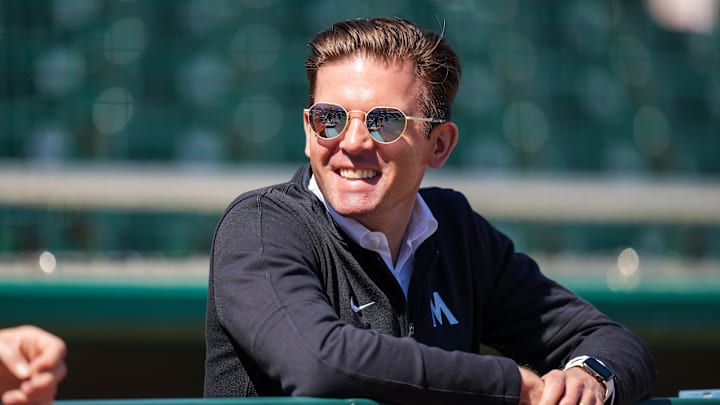When the Pohlad family announced that the Minnesota Twins were for sale last October, it led fans to a world of possibilities. Long constricted by the Pohlad’s frugal ways, fans dreamed of a world where the Twins would sign a major league free agent, make a trade and at least heat the hot stove occasionally.
But even if the new owner is Prince Charming with a billion-dollar briefcase, it may not be enough to compete in today’s Major League Baseball.
The Los Angeles Dodgers are starting to look like Mr. Burns’s softball team, signing every All-Star they can get their hands on. While contracts for Blake Snell, Shohei Ohtani and others have been pushed into the 2040s, the Dodgers still had a projected payroll of $369 million before they agreed to a deal with top free-agent closer Kirby Yates on Tuesday morning.
With a $239 million gap between the Dodgers' payroll and the Twins' desired $130 million figure going into next season, it may be too much for an owner like Justin Ishbia to step in and solve the problem. But he could help the Twins put a better product on the field and contend in what’s become a wide-open American League.
The Twins aren’t the only MLB team with a spending problem
The theme of this offseason has been aggressive spending as teams with deep pockets have dominated the market. While the Dodgers are getting the brunt of the frustration after signing Japanese phenom Roki Sasaki and top closer Tanner Scott over the weekend, other contracts such as the New York Mets’ $765 million contract with Juan Soto have put a spotlight as bright as the sun on the teams that aren’t spending.
Even the Athletics have agreed to big-money contracts with Luis Severino and Brent Rooker because the MLB Players Association believes they’re not spending enough, making a team like the Twins, who haven’t signed a major league free agent for over $5 million since February 2023, look even worse.
But while the Twins have been frugal, they haven’t been the only team tightening the purse strings this winter. Chicago Cubs owner Tom Ricketts generated headlines over the weekend when he publicly stated the Cubs aren’t going to spend money they don’t have even though the team was projected to make $540 million from last season.
Tom Ricketts on fans calling for Cubs to spend more:
— 670 The Score (@670TheScore) January 18, 2025
"They think somehow we have all these dollars that the Dodgers have or the Mets have or the Yankees have and we just keep it. Which isn't true at all. What happens is we try to break even every year, and that's about it."
The problem is similar in the rest of the American League Central where just seven players have signed deals for over $5 million and just two players (Cleveland’s Shane Bieber and Kansas City’s Michael Wacha) have signed multi-year deals this offseason.
The Twins can’t catch up with the Dodgers, but they can be on par with the rest of MLB
So what is a realistic solution? Even if a power owner buys the team this summer, the Twins will never be one of baseball’s biggest spenders. But they can find a way to put them on par with the rest of baseball.
The Athletic’s Aaron Gleeman analyzed the Twins’ payroll situation in October and found that their $130 million payroll was 24 percent lower than the MLB average. If that sounds like a lot, it’s similar to the frugalness that handicapped the team back in the Metrodome era, when their average payroll over the final five years (2005-09) was 23 percent lower than the average MLB team.
This should anger Twins fans who have given the Pohlads a taxpayer-funded ballpark that will help the family earn somewhere around $1.7 billion in the coming months. But it also signals the bar isn’t that high for the team to start spending.
The Twins may never be in the market for a megastar like Ohtani or Soto but it would be nice if they could add a right-handed outfield bat or left-handed reliever without having to salary dump a bad contract.
It would also be nice to know that the Twins could keep some of their players for the long term. Royce Lewis and Walker Jenkins should be exciting players that the franchise can build around but instead, they could end up in the same “right-sizing” that’s happening in Cleveland, where the Guardians have traded Andrés Giménez, Josh Naylor and Myles Straw this offseason.
Even bumping the Twins payroll into the $170 million threshold would make a big difference for a team that hasn’t reached the American League Championship Series since 2002. But unfortunately, the bottom line has been more important.
The Twins are not alone in this problem. But a new owner could help them separate from the pack.
